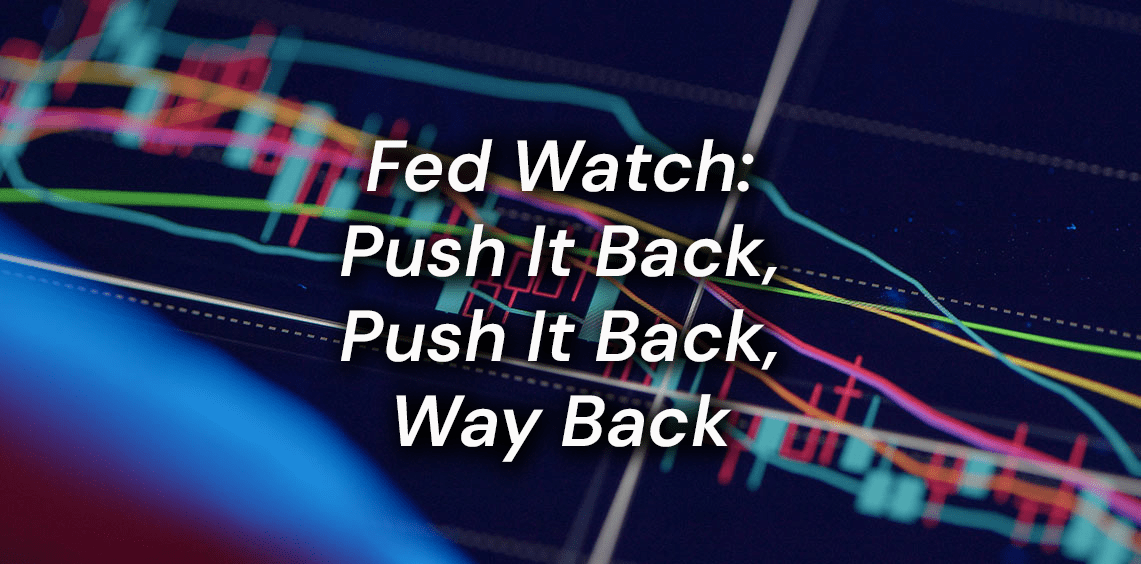I have been a harsh critic of Jerome Powell over the last few years. But I must say last week was the best news conference Powell delivered as Fed chairman. For the first time, Powell declared risks for the economy are more balanced. To be fair, he emphasized inflation a bit more, but he admitted there was a balance that risks of credit contracting could potentially hurt the economy.
The Fed always is data dependent—and Powell emphasized the Fed will be evaluating the incoming data. It is no longer preconceived the Fed will be hiking rates. This is a very welcome development for the markets.
I have raised my view of economic strength, and I’ve raised my view of what interest rates are consistent with the current economic strength. The Fed is not as overly restrictive as I previously feared.
Things were certainly looking bleak in March when the regional banks failed and then in May when commodity prices were falling significantly. I watch these forward-looking indicators closely for an impulse of the economy. Housing prices again last week ticked higher with the Case-Shiller housing index rising for the fourth consecutive month after it declined seven months in a row. I look at the M2 money supply as well, which also stopped declining.
None of this guarantees these sensitive and forward-looking indicators are now trending up and won’t resume a downturn but I’ve lowered my probability of recession to below 50%. If forced to give a probability, perhaps I would say 30%.
The 2.4% GDP figure for the second quarter was certainly a surprise. I don’t know any economist who thought it would be that high. Jobless claims—one of the highest frequency indicators we get every week—also have stayed quite low for the last few weeks in July after spiking earlier in June. There’s some weakness in the manufacturing sector but consumer sentiment is still very strong. We don’t have a runaway booming economy, but the recent reports indicate a strong economy.
The excess money balances which caused the inflation back in 2020-2021 are being spent and diffused into the system. There is a possibility of downside risks in autumn when the credit card bills come. Tuition comes in. Student loans start getting repaid again. So, we may have more downside risks in the economy in September/October.
But the Fed will be looking at these sensitive indicators on the real economy and will react by not only stopping rates but, if necessary, actually lowering rates. We have also entered the political season. There will be a lot of pressure by the Biden administration to not overtighten. So far, the higher rates have not dragged up unemployment but if we start getting negative headlines on job losses, there will be pressure on the Fed. The Fed has a dual mandate for inflation and employment, so they should react to such pressures.
Summarizing: all this economic view is good for stocks and earnings. The strength reduces recession probabilities, which was the greatest fear for the markets. It leaves value stocks very well priced because they were basically priced for recession and declining earnings.
Tech stocks are still expensive and could react to the higher interest rates. But it’s a momentum trade at the moment. Earnings certainly have come in very well this quarter.
I blame the Japanese central bank for breaking the Dow Jones record for daily gains, which would have been 14 days in a row—a record. Interest rates moved up about 15 basis points at the long end as the Japanese hold about $1 trillion of Treasuries; thoughts their rates could tick higher put pressure on U.S. rates.
I do not put much that much weight on the Japan moves. I’m a little confused on the message Japan is even giving. They say they will let their 10-year bonds rise to 1%. Is Japan now worried about inflation after 30 years not being worried? I think Thursday was an overreaction and Friday’s rebound basically confirms that overreaction. For now, it looks like the markets are bound to make new highs.
Past performance is not indicative of future results. You cannot invest in an index.
Professor Jeremy Siegel is a Senior Investment Strategy Advisor to WisdomTree Investments, Inc. and WisdomTree Asset Management, Inc. This material contains the current research and opinions of Professor Siegel, which are subject to change, and should not be considered or interpreted as a recommendation to participate in any particular trading strategy, or deemed to be an offer or sale of any investment product and it should not be relied on as such. The user of this information assumes the entire risk of any use made of the information provided herein. Unless expressly stated otherwise the opinions, interpretations or findings expressed herein do not necessarily represent the views of WisdomTree or any of its affiliates.






